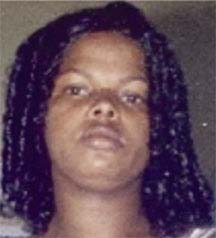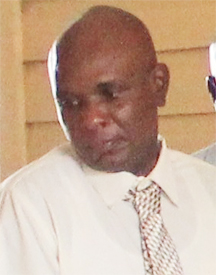Murder convict Dwayne Jordan yesterday had his death sentence substituted with 30 years imprisonment by the Court of Appeal though it admitted that there was compelling evidence against him.
On November 17, 2012, the then 40-year-old carpenter, Jordan was found guilty of the June 14, 2007 murder of Claudine Rampersaud at Den Amstel, West Coast Demerara before Justice Navindra Singh in the High Court. Jordan and Rampersaud were reputed husband and wife.
Justice Singh had told Jordan that the jury had found him guilty of the crime and as such he was to be taken to the lawful place of execution and be hanged until death.

Appellate Judge Arif Bulkan in reading his ruling yesterday provided a summary of the facts before pointing out that the jury accepted the prosecution’s case and convicted the accused. Noting that this was the second case of interpersonal violence that the court was hearing for the day, he said that in his appeal, Jordan’s attorney argued that the trial judge erred when he failed to hold a voir dire before admitting a key statement into evidence. Justice Bulkan pointed out that aside from that statement there was other compelling evidence that the lower court could have acted on. He said the evidence of the deceased woman’s brother-in-law, Ryan Lewis and her sister, Shellon Payne who were alerted to the incident and rushed to the scene was “very compelling in my opinion”. The two were attacked by Jordan, who then fled the scene.
The evidence presented in the lower court was that Jordan had heard a rumour that his wife had another man, following which she was found in an abandoned house with injuries that appeared to be caused by a hatchet or knife.
According to the appellate judge it was unfair to say that the trial judge did not assist the jury on the issues which were raised by the defence.
He spoke of the severity of the woman’s injuries noting that she had 12 incised wounds. “This was an orgy of violence….I am of the view that the identification evidence was compelling as it was evidence of recognition”, he said, while noting that there is no merit in the grounds of appeal.
As such he dismissed the appeal and affirmed the conviction of murder.
Fellow appellate judge, Chancellor (ag) Yonette Cummings-Edwards while also expressing agreement with the dismissal of the appeal against conviction, raised the issue of sentence.
She said that the evidence of identification was strong and issues in this regard were adequately dealt with. Like Justice Bulkan, she agreed that this was a case of recognition and that Lewis’ evidence was critical.
She noted that Parliament in 2010 had amended Section 100 which deals with the sentencing of persons convicted for murder; that is either the court imposes the number of years it considers appropriate or life imprisonment.
She said that prior to that, the death sentence was mandatory. In this case she said the sentence should be set aside and the 30-year term of imprisonment imposed.
Assistant Director of Public Prosecutions (DPP) Dionne McCammon represented the state in the appeal while attorney Prithima Kissoon stood in for attorney Nigel Hughes at yesterday’s hearing.
Hughes in making a plea of mitigation prior to sentencing in the lower court had said that his client was remorseful over his actions which caused four of his seven children to lose their mother and that it was a crime of passion. He further stated that where emotions of passion are involved it is difficult to predict actions.
Jordan has spent the last five years reflecting upon his actions, Hughes added, but prior to the incident he lived an honest life before finding himself in a very difficult and compromising position.
State prosecutor Konyo Thompson had rebutted that the crime showed that Jordan had a motive for killing his wife because he said she had another man. As such she had argued that his crime was premeditated and orchestrated.
Thompson had also argued that Jordan had showed no remorse during the trial and noted that this was his second trial after the jury in the first one returned a verdict of eleven guilty and one not guilty. She had also pointed out that the accused had attempted to commit suicide, since he was found with his tendons cut in a clump of bushes near to the crime scene.










